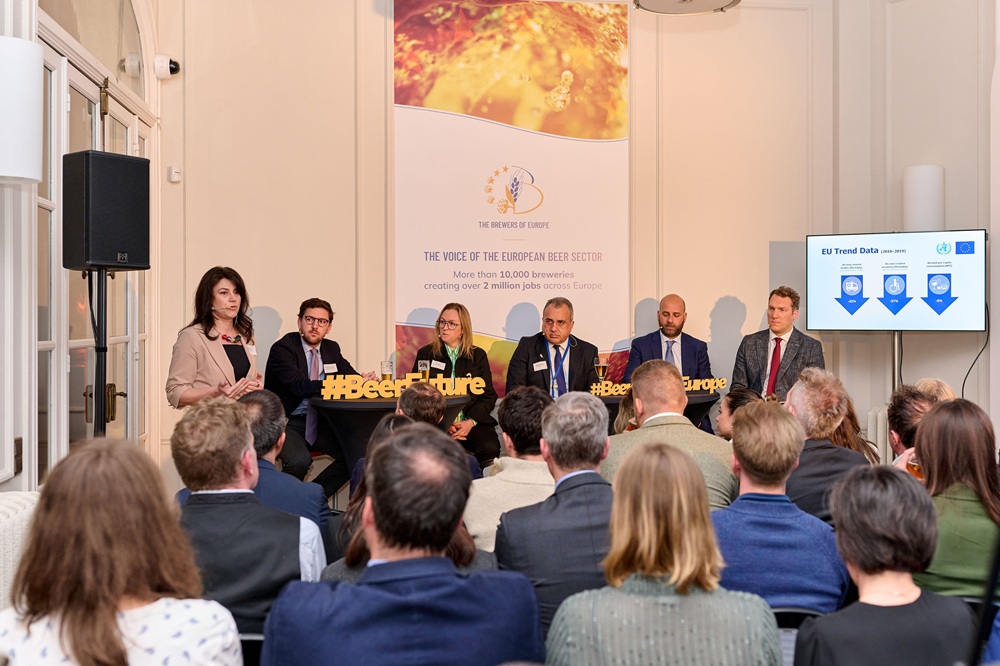Europe’s brewers rightly take great pride in crafting beers that celebrate flavour, tradition and conviviality. But that pride comes with responsibility. We recognise that alcohol abuse is a serious issue. It was on the agenda of the meeting of EU health ministers in Luxembourg this month and will be part of the debate at the United Nations High-Level Meeting (HLM4) on Non-Communicable Diseases (NCDs) in September.
The brewing sector is part of the solution.
That’s why I believe it’s time to talk honestly and constructively about how to address harmful use of alcohol. The answer lies in moderation and responsibility, not prohibition.
The good news is that responsible and moderate beer consumption is already delivering results. The World Health Organisation’s Global Status Report on Alcohol and Health, published at the end of 2024 shows that since 2010, harmful drinking and alcohol-related mortality rates have fallen by more than 20% in the European Union.
Moreover, the rates of binge drinking and underage consumption have declined significantly over the past decade. Adolescents, in particular, are drinking less and more mindfully: the EU-funded ESPAD study of 114,000 15-16 year olds shows that binge drinking is down 30% since 2007, reaching its lowest rate in the thirty-year history of the ESPAD. Alcohol-related violence has dropped sharply too, whilst drink drive fatalities also fell 30% in a decade, according to the European Transport Safety Council.

This shift is not accidental. It’s the outcome of years of education, enforced, targeted regulations, awareness-raising and voluntary initiatives that promote responsible, informed choices and put clear boundaries in place.
European brewers have long supported policies that give consumers the tools they need to understand what they’re drinking - from clear labelling of ABV, ingredients and calorie information, to investments in non-alcohol alternatives - showcasing our commitment through initiatives such as the Beer Pledge and #ProudToBeClear. They’ve invested in campaigns to champion moderation and supported third-party efforts to curb abuse. They’ve embraced innovation, expanding portfolios with non-alcohol beers that give people more choices. Increasingly available on tap too, every fifteenth beer consumed in the EU is now without alcohol.
More can be done - and should be done - if we want to build on this progress. That means resisting the temptation to demonise our companies’ products or to impose one-size-fits-all, top-down restrictions that may sound tough, but often prove ineffective.
Heavy-handed regulation can backfire, driving harmful drinking underground or undermining public trust. Instead, we should double down on what works: targeted measures, smart regulation and above all, a shared commitment to moderation and responsibility.
Governments and regulators have an important role to play. But so do we as brewers. That’s why I believe in the whole-of-society approach, through partnership - not polarisation. Let’s work together to ensure that policy initiatives support responsible consumption without penalising the millions who enjoy a beer (and more and more often a non-alcoholic beer) in moderation.
What we need is a balanced approach. One that protects vulnerable individuals, empowers consumers and allows our brewing culture - so deeply rooted in Europe’s social and agricultural heritage - to thrive responsibly.
Brewing has evolved. So have consumers. Now policy must adapt too, recognising that modern brewers are part of the solution.
That starts with an honest conversation and a shared sense of purpose. Let’s focus on what brings us together: reducing harm, supporting moderation, and building a beer sector that contributes to EU competitiveness and is sustainable for generations to come.
Because in the end, moderation isn’t just good advice - it’s good policy. And it’s already making a difference.
Sign up to The Parliament's weekly newsletter
Every Friday our editorial team goes behind the headlines to offer insight and analysis on the key stories driving the EU agenda. Subscribe for free here.